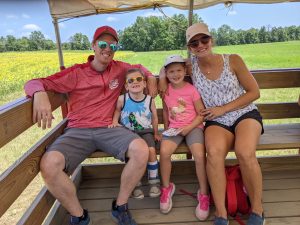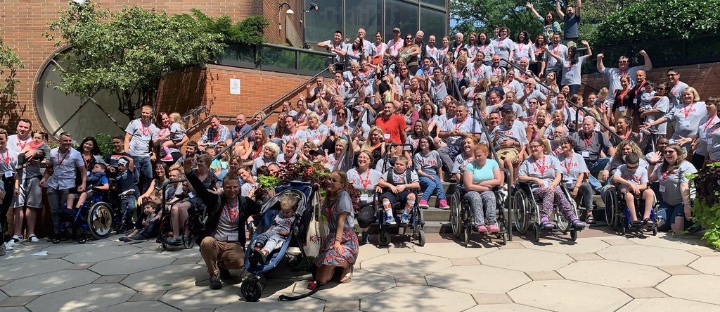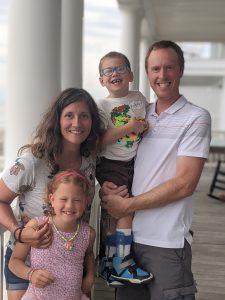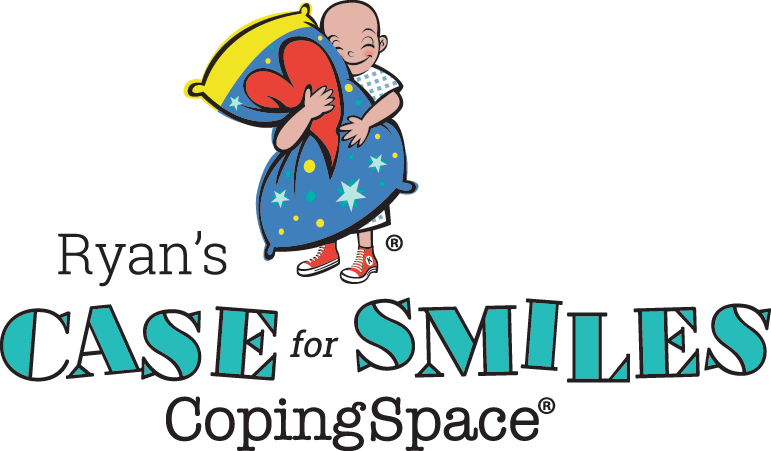BLOG
Living Life in the Rare Disease Lane: How to Find a Community of Support
By Charlotte Klinepeter, KIF1A Mom and KIF1A.ORG Administrative Manager
We’ve all had moments, or even seasons of life, where we are “living in the fast lane.” The typical hustle and bustle. The regular day-to-day list  of to-dos that never seems to end. Life can weigh us down with unforeseen baggage to lug around with us in the fast lane. Add kids, sports, work, and everything else we juggle into the mix, and sometimes that life in the fast lane becomes a race against time!
of to-dos that never seems to end. Life can weigh us down with unforeseen baggage to lug around with us in the fast lane. Add kids, sports, work, and everything else we juggle into the mix, and sometimes that life in the fast lane becomes a race against time!
Unbeknownst to me and my family, our typical life in the fast lane was about to be doubled in speed as we quickly shifted into a lane of the unknown. After waiting 6 months, one single email changed the fate of our family’s future.
Life After a Child Is Diagnosed with a Rare Illness
Disease experts. Advocates. Researchers. Financial donors. Fundraising event planners. My husband and I became all of these overnight. We had just received our son’s diagnosis: an untreatable, rare, and progressive disease called KIF1A Associated Neurological Disorder. Now our lives focused on the race against time as we heard the clock ticking inside our heads. We were officially given the title we never applied for: caregiver.
When you’re handed a diagnosis for an illness which has no care guidelines, and only 350 people in the entire world are currently known to have it, where do you go? What do you do? Who do you contact? So many thoughts ran through our minds about what life would look like for our family. In this moment, we also had to finish our day at work, put on a smile while we made dinner for our family, and get the kids ready for bed. Then we had to do it again the next day. And the next. It was almost as if we weren’t allotted time for grief and processing because everything else required 100% of our time.
Parenting a Child with a Rare Disease
This is life in the rare disease lane. Rare disease does not quit. It doesn’t give you a day off. It has morphed our son’s future into an unknown fate. Instead of planning our child’s playdates and outings into the community, we are scheduling appointments, tending to emergency situations, and trying to take another day off work because we can’t find a sitter who can care for our child’s needs. And because our needs and requests are so great, our village of supporters are fatigued, too. One thing that never fatigues is support of a community brought together under such unfortunate circumstances and a dreadful diagnosis.
The Importance of Community After a Child Is Diagnosed with a Rare Disease
How we survive: hope and community. We are grateful for the community already established to support families affected by the same disorder as our son. There is something boldly fulfilling about walking our similar journeys alongside one another. While distance may keep many of us apart, technology has allowed us to connect with one another in ways we wouldn’t be able to otherwise.
While we may not be understood by most, we understand each other. The people in the KIF1A community get us, and we get them. They get what it’s like to live life in the rare disease lane. While we hope this lane ends where therapeutic developments lie ahead, our bonds and friendships will always be part of our family’s journey.
How to Find a Family Community of Support
 A family community offers not only support and comradery. It also serves as a place to receive guidance and suggestions such as the best questions to ask doctors, how to address symptoms that other families may have experienced, or even where to find champion physicians. We have learned so much from other families who have older children, or who have had this diagnosis longer and have a bit more experience.
A family community offers not only support and comradery. It also serves as a place to receive guidance and suggestions such as the best questions to ask doctors, how to address symptoms that other families may have experienced, or even where to find champion physicians. We have learned so much from other families who have older children, or who have had this diagnosis longer and have a bit more experience.
Places to Find Support Communities for Families of Ill or Injured Kids
There are many ways you can go about finding your own family community of support. Below are just a few examples.
- Healthcare Providers – You already know your child’s doctors and nurses are trustworthy resources for information about your child’s illness/injury and care. But did you know, you can also ask them about emotional and social support? They may have a ready list of resources or a few tips on where to start your search.
- Child Life Specialists and/or Social Workers – Social workers and CLS’ job is to help you and your child find the support you need. In addition to the hospital resources and services they provide, they may also be able to direct you to local support groups, online communities, and other ways you can find families to connect with.
- Web Search – Google, Bing, Yahoo and more! There are so many platforms to help you find what you need online. Type in your child’s diagnosis, relevant keywords, or any question you might have to see where it may lead. Many search engines also provide suggested searches for you to explore. Just be sure to vet your sources and double check it’s a legitimate organization and webpage.
- Social Media – Facebook, Twitter, Instagram, and other social media platforms are another great way to find new resources and communities of support. Search using keywords and hashtags, or post asking for suggestions of places you can turn. But again, make sure to use your best judgement to assure these communities are legitimate, positive and where you want to be.
Communities for Families of Children with Rare Diseases
When your child is diagnosed with a rare disease, it can be a bit more difficult to find resources and support. Below are two organizations devoted to families just like yours.
- National Organization for Rare Disorders (NORD) – NORD is patient advocacy organization dedicated to individuals with rare diseases and the organizations that serve them. NORD, along with its more than 300 patient organization members, is committed to the identification, treatment, and cure of rare disorders through programs of education, advocacy, research, and patient services. Visit their website, rarediseases.org for family resources, information, and additional support.
- Global Genes – Global Genes is a globally connected community which seeks to eliminate the challenges of rare disease. They help patients find and build communities, gain access to information and resources, connect to researchers, clinicians, industry, government, and other stakeholders, share data and experiences, stand up, stand out, and become effective advocates on their own behalf. Visit globalgenes.org to learn more and get involved.
So much good can come from bringing together some of the top experts on an illness or injury. (Hint: It’s those impacted by it every day!) If you are on the fence about getting involved with an already existing support group, I highly encourage you to step into the unknown. And if one does not yet exist to meet your needs, you might want to explore establishing one so other families in need can find you!
**Statements on this blog reflect the author’s personal opinion and do not represent the views of Ryan’s Case for Smiles. They are also not to be viewed as personal medical advice, but rather for the purpose of general knowledge. The reader should speak to their healthcare team, or their child’s, for medical advice.**
 About the Author: Charlotte Klinepeter joined KIF1A.ORG’s team as the Administrative Manager in 2020 after her son was diagnosed with KIF1A Associated Neurological Disorder. There she assists in day-to-day operations, ranging from fundraising and development to marketing and communications.
About the Author: Charlotte Klinepeter joined KIF1A.ORG’s team as the Administrative Manager in 2020 after her son was diagnosed with KIF1A Associated Neurological Disorder. There she assists in day-to-day operations, ranging from fundraising and development to marketing and communications.
She and her husband Matt, along with their children, live outside of Harrisburg, Pennsylvania. They enjoy spending much of their free time together being active and exploring. When Charlotte is not working or tending to the needs of her family, she stays busy running, socializing with friends, and gardening.
